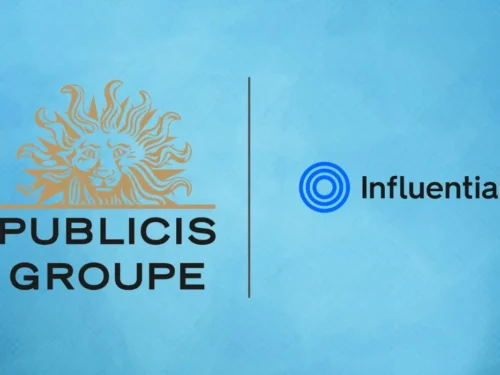7 Tips That Saves A Fortune On Your Pay Per Click Budget
On average, Google Ads advertisers receive $2 revenue on every $1 spent. This means an advertiser can expect to make double the money invested on this platform but there is no guarantee. It is compelling but intimidating as well.
Essentially, it is gambling. It is looking for your investment to pay off than making zero dollar profit. It is common to believe that you need higher investment for higher returns.
But the truth is:
You don’t need a big budget to generate sales. A low budget PPC campaign will also lead to effective results. Here is how you can do it.
7 Tips to get optimize your PPC campaign
1. Optimize Ad Copy to Increase CTR
One of the best ways to save money on Google Adwords is by writing a better ad copy. A poor ad copy will not bring you desired returns while a better ad copy will appeal to your audience, increase your click-through rate (CTR), and Quality Score. The quality of ad text is a major contributor to build your Quality score. The quality score has a direct link to the success of your PPC campaign and therefore, it makes sense to invest time to optimize your ad copy.
2. Set your daily maximum budget
Before starting with the campaign creation and actual investment, project your result in advance to keep realistic goals.
A low budget is not a cash cow but a relative term.
For instance, enter your maximum of the low-budget spend for a single day. If you can spend $150 per month, which implies $5 per day.
The next step is to comprehend the common data-based averages to get an idea about the cost per click and whether it aligns with your budget.
In Q1 of 2018, the average CPC’s were $2.76 and CTR was 4.23% on Google ads
3. Use Ad Extensions
The second money-saving tip is to use ad extensions that improve your CTR. It allows the audience to take direct action from the searches whether you want them to call your business, download your app, know your offers, locate you on maps, or visit your webpage. Extensions make your ad more competitive and encourage users to know more about your business.
4.Geolocation:
The most overlooked but critical feature in AdWords. For example, a dentist in Boston doesn’t want the ad to appear in searches of dentists in Los Angeles.
In the campaign settings, advertisers can easily target a specific country, state, DMA, city, and even zip code. Radius targeting is also possible around specific addresses to get even more granular.
Geolocation settings are also important for businesses selling goods and services from a physical location to set optimal working hours of their operations.
5. Try out single keywords to target:
When you are on low budget campaigns on PPC, you cannot bid on multiple keywords to get results. It will narrow the spread of the result, need longer set up, unique landing pages raising your time, effort and cost. If you have a budget of $5 a day, it is futile to bid on ten keywords costing that amount for a single click.
Use a ‘single, specific, good’ keyword. You shouldn’t be targeting head terms like helicopter skiing. Someone searching ‘Helicopter skiing’ has no idea what they want – they will click on your PPC ad, browse and then leave.
The keynote is to be as specific as possible with the keyword. The more specific is your keyword or long-tail keywords, cheaper is the cost and better is the click-through rates and in return the quality score.
To calculate the effectiveness of your keyword bidding strategy, try this
Keyword searches x CTR = Estimated traffic
So what kind of keyword you should find?
Use the keyword research tool to unlock all keyword possibilities including new keyword niches and less common keywords that have the potential to drive traffic and conversions.
This tool gives you valuable data like bidding estimates for top bids and top spot bids considering the competition.
For instance, Look for a medium volume with less competition keyword and search the results that match the intent. (Intent means what the searcher expects to achieve with the search.)
The search is “Best CRM” which means the searcher is looking for the rankings of CRM’s and not the CRM product that is claiming to be the best.
6. Call-only campaigns:
Call only ads are ideal for advertisers trying to generate phone calls from their PPC campaigns. Some businesses with smaller budgets have challenges with landing pages. Visitors might abandon their shopping cart or download or anything if directed to a landing page at any stage of the conversion process with the risk that they may not complete the activity. Therefore, call-only campaigns enable users to call you directly by clicking on the ad. Furthermore, the finest part of these ads is that they appear only on those mobile devices that are capable of making calls. Hence, you will not squander money on unsuitable devices.
Don’t miss the opportunity on prospective customers by directing to landing pages which may never complete.
7.Ad Scheduling
Ad Scheduling is essential to control your budget, especially if funds are tight. Similar to geolocation settings, dayparting or ad scheduling help you maximize your business visibility at a certain time when your customers are online.
For instance, if your store is open between 8.am to 5.00 p.m, Monday to Friday, set your ads to display during the working hours to drive the traffic. However, if you sell online, you are always open then you can set your ads when the customer traffic is at peak to avoid any negative ROI.
Ad scheduling in collaboration with geolocation, you can exercise strong control over where and when your ads are to be shown to the users while being careful not to hamper your efforts with excess control.
Final Words
It is not the budget that determines the success of your PPC campaigns but strategy. Google Ad words have many features to offer and you can gain impressive results on a tight budget.
It is sensible to start small and expand your reach with a limited budget once you comprehend which strategy works best for you. Spend time in your PPC account to identify the problematic areas and correct them. This will save you from any financial damage and give insight on the outcome of your strategy.
Relevant keywords, well-designed PPC strategy, and a good understanding of your target audience can aid the potential of your campaign even with a tight budget.
Author Profile

- Neha Mehta
- Neha started her journey as a financial professional but soon realized her passion for writing and is now living her dreams as a content writer. Her goal is to enlighten the audience on various topics through her writing and in-depth research. She is geeky and friendly. When not busy writing, she is spending time with her little one or travelling.
Latest Posts
 Interview and Guest PostJuly 19, 2024Navigating Ad Tech: Equativ’s Jacqueline Chua’s Strategic Insights
Interview and Guest PostJuly 19, 2024Navigating Ad Tech: Equativ’s Jacqueline Chua’s Strategic Insights Interview and Guest PostJune 21, 2024CTV Exploration: Chandrahas Shetty, Demand Facilitation Lead, India, On Growth And Privacy
Interview and Guest PostJune 21, 2024CTV Exploration: Chandrahas Shetty, Demand Facilitation Lead, India, On Growth And Privacy Interview and Guest PostJune 14, 2024Advertising Evolution: Rasha El-Ghoussaini on Snap Inc.
Interview and Guest PostJune 14, 2024Advertising Evolution: Rasha El-Ghoussaini on Snap Inc. Interview and Guest PostJune 5, 2024Navigating Digital Waves: Shrenik Gandhi’s Journey with WRM
Interview and Guest PostJune 5, 2024Navigating Digital Waves: Shrenik Gandhi’s Journey with WRM










